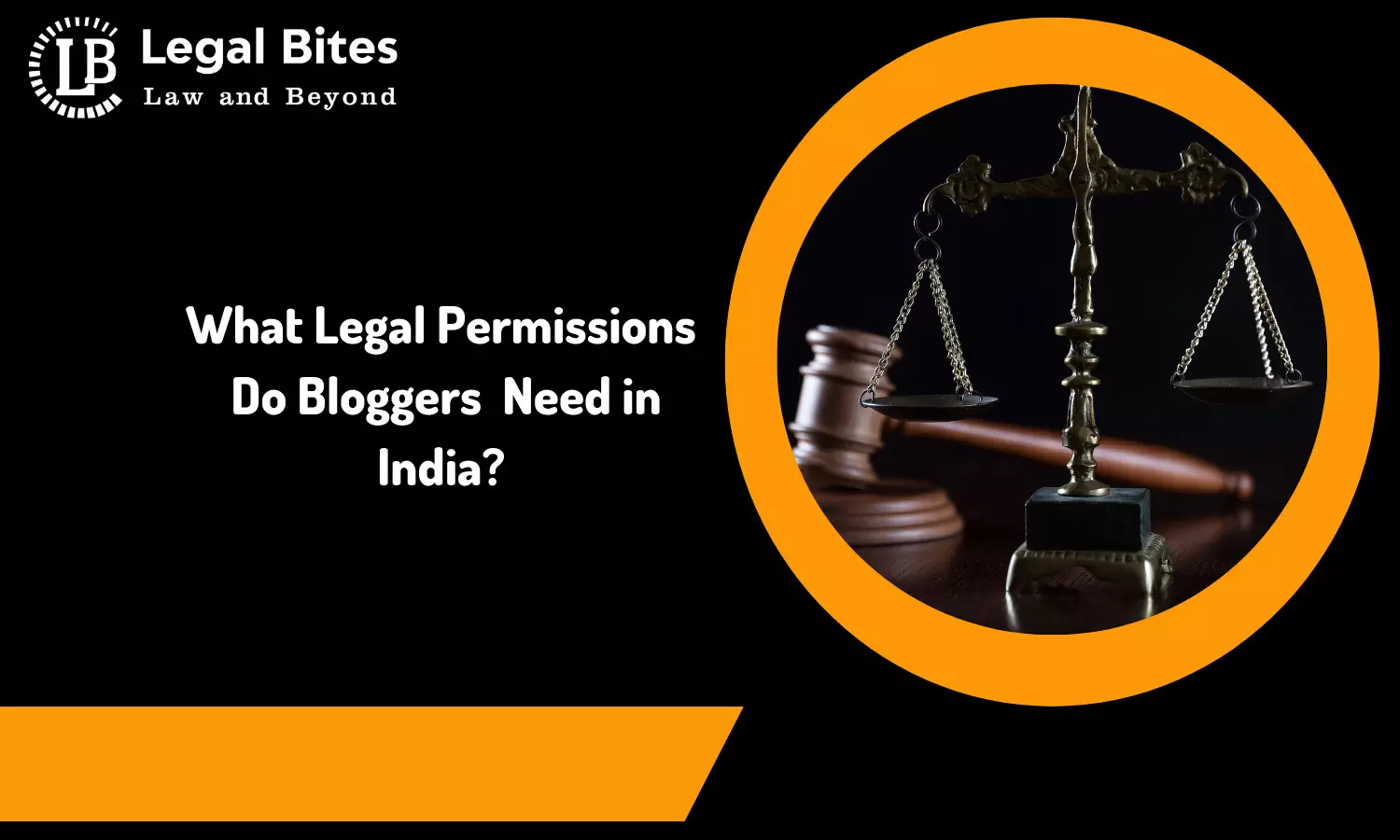What legal permissions do bloggers need in India?
The article 'What legal permissions do bloggers need in India?' contains that bloggers should be aware of and comply with the relevant laws and regulations related to their content and activities.

The article 'What legal permissions do bloggers need in India?' contains suggestions that bloggers should be aware of and comply with the relevant laws and regulations related to their content and activities.
Blogging refers to the act of writing and publishing content on a blog, which is a website or an online platform that allows individuals or businesses to share their ideas, experiences, opinions, and other forms of content with a wider audience.
Bloggers are individuals or groups of people who create and manage blogs. They can be professionals or amateurs, and they cover a wide range of topics such as lifestyle, travel, technology, politics, education, and more.
Blogging has become increasingly popular in recent years as it offers a platform for people to express themselves and share their thoughts with a global audience. Bloggers can monetize their content through advertising, sponsored content, or affiliate marketing. They can also use their blogs to promote their businesses, products, or services or to build their brand and establish themselves as experts in their respective fields.
The blogging community is diverse and constantly evolving, with new trends, technologies, and strategies emerging all the time. Many bloggers collaborate, participate in blogging communities, attend conferences, and share tips and best practices to improve their blogging skills and grow their audience.
What legal permissions do bloggers need in India?
As a blogger in India, there are several legal permissions you may need to obtain depending on the nature of your blog and the content you publish. Here are some of the most common permissions that bloggers may need:
- Business Registration: If you are running a blog as a business, you may need to register it with the appropriate government authorities, such as the Registrar of Companies.
- Domain Registration: You will need to register your domain name with a domain registrar to secure your online presence.
- Copyright Permissions: If you are using copyrighted material, such as images or videos, you need to obtain permission from the copyright owner or license the content through a Creative Commons license.
- Trademark Registration: If you have created a brand name or logo for your blog, you may want to consider registering it as a trademark to protect it from unauthorized use.
- Privacy Policy: It is essential to have a privacy policy that outlines how you collect and use user data, especially if you are collecting personal information from your readers.
- Terms and Conditions: You should also have terms and conditions that govern the use of your blog and outline the rights and responsibilities of both you and your readers.
- Advertising Permissions: If you plan to monetize your blog through advertising, you may need to obtain permission from the appropriate regulatory authorities, such as the Advertising Standards Council of India.
It is important to note that the legal requirements for bloggers may vary depending on the type of content you publish, your target audience, and the laws and regulations that apply to your particular niche. It is always a good idea to consult with a legal professional to ensure that you are complying with all applicable laws and regulations.
Important Links
Law Library: Notes and Study Material for LLB, LLM, Judiciary, and Entrance Exams


